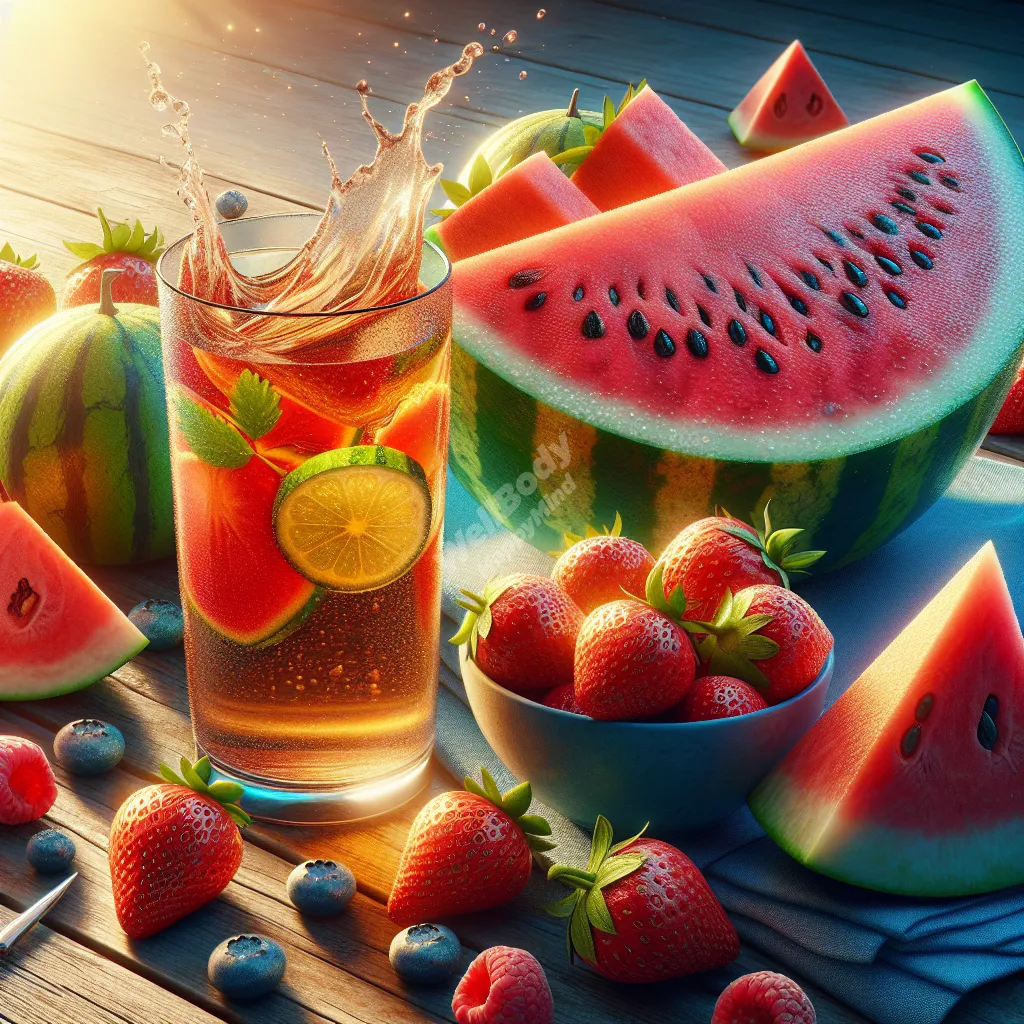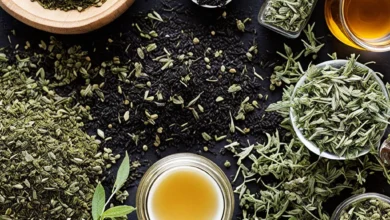Morning Hydration Hacks: Jumpstart Your Day

I. Introduction
Did you know that up to 60% of your body is made up of water? Yet, many of us wake up each morning unknowingly dehydrated. A study by the University of Connecticut found that even mild dehydration can affect your mood, energy, and ability to think clearly. But don’t worry – there’s a simple solution to kick-start your day right!
Proper morning hydration is like giving your body a refreshing reboot. It can boost your metabolism, fuel your brain, and set a positive tone for the rest of your day. In this post, we’ll explore easy and effective morning hydration hacks that will help you drink up and feel great from the moment you open your eyes.
II. The Science Behind Morning Hydration
A. Why we wake up dehydrated
When you sleep, your body continues to work. It repairs tissues, processes toxins, and regulates various bodily functions. All these activities use water, leaving you somewhat dehydrated by morning. Plus, you’re not drinking anything for 6-8 hours while you sleep!
B. Effects of overnight dehydration on the body
Waking up dehydrated can leave you feeling groggy and unfocused. Your body’s cells need water to function properly, and when they’re low on fluid, you might experience:
- Fatigue
- Dry mouth
- Headache
- Dizziness
- Difficulty concentrating
C. Benefits of immediate hydration upon waking
Drinking water first thing in the morning can quickly reverse these effects. Here are some key benefits:
- Jumpstarts your metabolism
- Flushes out toxins
- Fuels your brain
- Helps regulate body temperature
- Aids digestion
- Improves skin health
- Boosts energy levels
By understanding the science, you can see why morning hydration is so important. It’s not just about quenching your thirst – it’s about giving your body what it needs to function at its best.

III. Determining Your Optimal Morning Water Intake
A. Factors affecting individual hydration needs
Everyone’s hydration needs are different. Your optimal water intake depends on several factors:
- Age
- Weight
- Gender
- Activity level
- Climate
- Diet
- Overall health
- Pregnancy or breastfeeding status
B. General guidelines for morning water consumption
While individual needs vary, a good rule of thumb is to drink about 16-20 ounces (470-590 ml) of water within the first hour of waking up. This amounts to about 2-3 glasses of water.
For the rest of the day, aim for half your body weight in ounces. For example, if you weigh 150 pounds, try to drink 75 ounces of water throughout the day.
C. Signs of proper hydration vs. dehydration
It’s important to recognize the signs of good hydration and dehydration. Here’s a simple comparison:
| Signs of Good Hydration | Signs of Dehydration |
|---|---|
| Clear or light yellow urine | Dark yellow or amber urine |
| Regular urination (4-6 times a day) | Infrequent urination |
| Moist lips and mouth | Dry, sticky mouth |
| Elastic skin (bounces back when pinched) | Skin lacks elasticity |
| Feeling energetic | Fatigue or sluggishness |
| Clear thinking | Confusion or irritability |
Remember, these are general guidelines. If you have any health conditions or concerns, it’s always best to consult with your doctor about your specific hydration needs.
IV. Morning Hydration Hacks

A. Prepare water the night before
Set yourself up for success by preparing your water before bed. Place a full glass or water bottle on your nightstand.
Tips for making this a habit:
- Use a special cup or bottle you enjoy
- Add it to your bedtime routine checklist
- Set a reminder on your phone
B. Drink water immediately upon waking
Make drinking water your first action of the day, even before checking your phone. This jump-starts your metabolism and helps rehydrate your body quickly.
Why it’s beneficial: Your body has been without water for hours. Drinking immediately helps replenish fluids, flush out toxins, and wake up your digestive system.
C. Infuse water with natural flavors
If plain water isn’t appealing, try infusing it with natural flavors. This can make hydration more enjoyable and provide extra health benefits.
Healthy infusion ideas:
- Lemon slices (boost vitamin C)
- Cucumber (adds refreshing flavor)
- Berries (antioxidant boost)
- Mint leaves (aids digestion)
- Ginger slices (anti-inflammatory properties)
D. Use a straw for easier consumption
Drinking through a straw can help you consume water more quickly and easily. It’s especially helpful if you’re not feeling particularly thirsty in the morning.
E. Set reminders or use hydration apps
Technology can be a great tool for building new habits. Set recurring reminders on your phone or use a hydration app to track your water intake throughout the day.
F. Pair water intake with other morning routines
Link your water intake to existing habits to make it stick. For example:
- Drink a glass while waiting for your coffee to brew
- Keep a bottle by your toothbrush and sip while brushing
- Have a glass with your morning vitamins or medication
By incorporating these simple hacks into your morning routine, you can easily boost your hydration and start your day on the right foot.
V. Enhancing Morning Hydration

A. Hydrating foods to include in breakfast
Eating water-rich foods can complement your morning fluid intake. Here’s a list of hydrating foods you can easily add to your breakfast:
- Watermelon (92% water)
- Strawberries (91% water)
- Cantaloupe (90% water)
- Peaches (88% water)
- Oranges (87% water)
- Greek yogurt (87% water)
- Cottage cheese (80% water)
- Oatmeal (84% water when prepared)
B. Herbal teas and their hydrating properties
Herbal teas can be a tasty way to increase your morning fluid intake. Unlike caffeinated teas, herbal teas are generally hydrating. Some good options include:
- Peppermint tea: Refreshing and may aid digestion
- Chamomile tea: Calming and may reduce inflammation
- Ginger tea: Can help with nausea and has anti-inflammatory properties
- Rooibos tea: Rich in antioxidants and naturally caffeine-free
C. Importance of electrolytes
Electrolytes are minerals in your blood that help balance the amount of water in your body. They’re crucial for proper hydration.
Natural sources of electrolytes for morning consumption:
- Bananas (potassium)
- Coconut water (potassium, magnesium, sodium)
- Kiwi (potassium, magnesium)
- Spinach (magnesium, calcium)
- Salt (in moderation for sodium)
Adding a pinch of salt to your morning water or including these foods in your breakfast can help your body retain the water you’re drinking, leading to better hydration.
Remember, while these additions can enhance your hydration efforts, they shouldn’t replace drinking plain water. The goal is to complement your water intake, not substitute it.
VI. Overcoming Common Morning Hydration Challenges
Let’s address some common hurdles people face when trying to improve their morning hydration, using a Q&A format:
Q: “I don’t feel thirsty in the morning. How can I drink water when I don’t want to?”
A: Start small. Begin with just a few sips and gradually increase. Try room temperature water, which can be easier to drink. Also, consider flavoring your water or using the infusion ideas mentioned earlier.
Q: “I love my morning coffee. How do I balance caffeine with hydration?”
A: While coffee isn’t dehydrating, it’s not as hydrating as water. Try drinking a glass of water before your coffee. Or, adopt the “one for one” rule: for every cup of coffee, drink a cup of water.
Q: “I’m worried about having to use the bathroom more often if I drink more water in the morning.”
A: Your body will adjust over time. Start by increasing your intake gradually. Most of the extra bathroom trips happen in the beginning as your body gets used to the new routine. The long-term benefits are worth the short-term inconvenience.
Q: “I forget to drink water in the morning. How can I remember?”
A: Link water drinking to other morning habits, like brushing your teeth or making your bed. You can also set reminders on your phone or leave visual cues like a water bottle in prominent places.
Q: “I’m not a morning person. How can I make myself drink water when I’m barely awake?”
A: Keep water by your bed and make it the first thing you reach for, even before you get up. You can also try using a straw, which can make drinking easier when you’re still groggy.
Q: “I’m worried about drinking too much water. Is that possible?”
A: While it’s rare, it is possible to drink too much water. Stick to the guidelines we discussed earlier, and listen to your body. If you’re concerned, consult with your doctor about the right amount for you.
Remember, overcoming these challenges might take time. Be patient with yourself and celebrate small improvements in your hydration habits.
VII. Creating a Sustainable Morning Hydration Routine

A. Starting small and building gradually
The key to forming any new habit is to start small and build consistently. Here’s how:
- Begin with just one extra glass of water in the morning.
- Once that feels easy, add another glass or increase the size.
- Gradually work up to your optimal morning water intake over a few weeks.
Remember, slow progress is still progress. It’s better to make small, sustainable changes than to overwhelm yourself with drastic ones.
B. Tracking progress and adjusting as needed
Keeping track of your hydration can help you stay motivated and identify areas for improvement:
- Use a simple tally system in a notebook or on your phone.
- Try a water tracking app if you’re tech-savvy.
- Mark your water bottle with time goals throughout the day.
Review your progress weekly and adjust your routine if needed. If you’re struggling, don’t be afraid to take a step back and reassess your approach.
C. Making it enjoyable and rewarding
The more you enjoy your hydration routine, the more likely you are to stick with it. Here are some ideas to make hydration fun and rewarding:
- Invest in a water bottle you love using.
- Experiment with different healthy flavor infusions.
- Celebrate milestones (like a week of meeting your water goals) with a small reward.
- Turn it into a friendly competition with family or coworkers.
- Use colorful straws or ice cube shapes to make your water more visually appealing.
Remember, the goal is to make hydration a positive part of your morning routine, not a chore. Find what works for you and makes you look forward to that first sip of the day.
By focusing on sustainability, you’re more likely to turn your morning hydration hacks into long-lasting habits that benefit your health for years to come.
VIII. The Ripple Effect: How Morning Hydration Impacts Your Entire Day

Starting your day well-hydrated sets a positive tone that can influence your entire day. Let’s explore the far-reaching benefits of good morning hydration:
A. Improved energy levels
- Boosts metabolism, helping you feel more alert and energized
- Reduces fatigue and drowsiness commonly experienced in the morning
- Supports better physical endurance throughout the day
B. Enhanced cognitive function
- Improves concentration and focus
- Supports better memory retention
- Helps maintain mental clarity during tasks and decision-making
C. Better physical performance
- Regulates body temperature more effectively during exercise
- Reduces the risk of heat stress during physical activities
- Helps maintain joint lubrication, potentially reducing discomfort during movement
D. Positive influence on daily water intake habits
- Sets a good precedent for continued hydration throughout the day
- Creates a mindful approach to listening to your body’s hydration needs
- Encourages overall healthier lifestyle choices
Additional benefits:
- Supports digestive health, potentially reducing issues like constipation
- May help control appetite and reduce unnecessary snacking
- Contributes to clearer, healthier-looking skin
- Supports kidney function in flushing out toxins
By prioritizing hydration first thing in the morning, you’re not just quenching your thirst – you’re setting yourself up for a day of better health, higher productivity, and improved overall well-being. It’s a simple act with powerful consequences that ripple through every aspect of your day.
IX. Conclusion
As we’ve explored throughout this post, starting your day with optimal hydration is more than just a health tip – it’s a powerful tool for enhancing your overall well-being. From boosting your energy and sharpening your mind to improving your physical performance, the benefits of good morning hydration ripple through every aspect of your day.
Remember, the key to success lies in finding a routine that works for you. Whether it’s preparing your water the night before, infusing it with your favorite fruits, or linking your water intake to existing habits, there are countless ways to make morning hydration an enjoyable and sustainable part of your daily routine.
Start small, be consistent, and don’t be afraid to adjust your approach as needed. Every sip you take in the morning is a step towards better health. With time and practice, reaching for that glass of water will become as natural as reaching for your phone – and far more beneficial!
So why not start tomorrow? Set out that water bottle tonight, and take the first step towards a more hydrated, energized, and healthier you. Your body will thank you, and you might just be surprised at how much better your days can be when they start with a simple glass of water.
Remember, big changes often start with small habits. Your journey to better health and wellness can begin with something as simple as a morning sip. Cheers to your health!
X. Additional Resources
For those who want to dive deeper into the world of hydration and overall wellness, here’s a list of suggested readings and tools:
- Books:
- “Quench: Beat Fatigue, Drop Weight, and Heal Your Body Through the New Science of Optimum Hydration” by Dana Cohen and Gina Bria
- “The Water Secret: The Cellular Breakthrough to Look and Feel 10 Years Younger” by Howard Murad
- Websites:
- The Mayo Clinic’s Nutrition and Healthy Eating section (www.mayoclinic.org/healthy-lifestyle/nutrition-and-healthy-eating)
- National Institutes of Health’s Hydration page (www.nih.gov)
- Tools:
- Smart water bottles that track your water intake
- Hydration reminder apps for smartphones
- Scientific articles:
- “Water, Hydration and Health” in Nutrition Reviews (available on the National Center for Biotechnology Information website)
- Podcasts:
- “Hydration 101” episode on the Nutrition Diva podcast
- “The Importance of Hydration” on the FoundMyFitness podcast
Remember, while these resources can provide valuable information, it’s always best to consult with a healthcare professional for personalized advice on your hydration needs.



